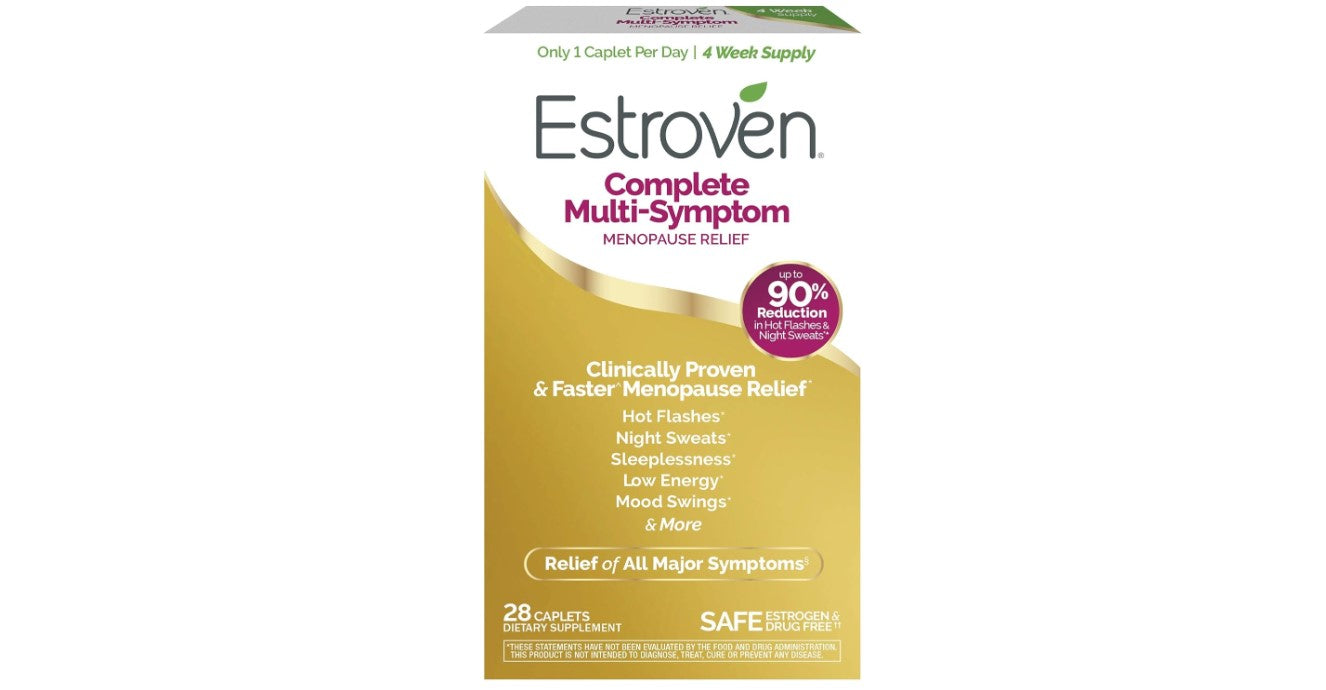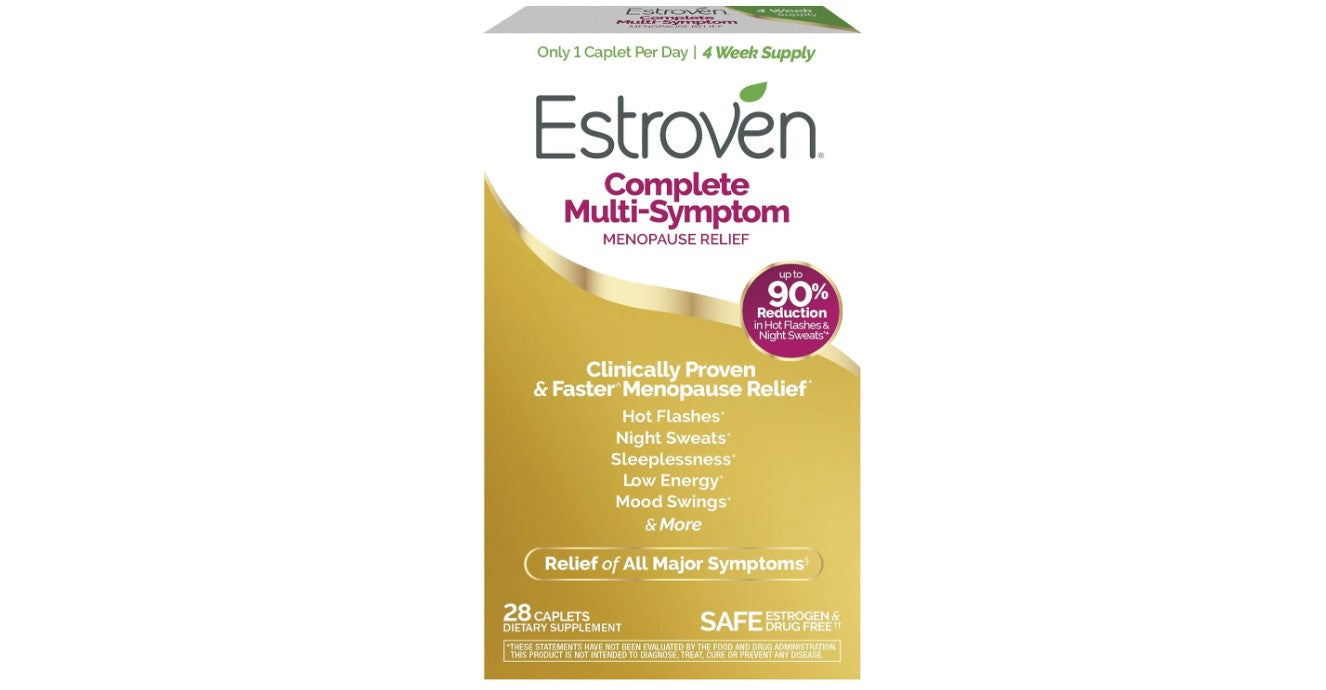
Estroven Ingredients
Rhapontic Rhubarb Extract (Rheum Rhaponticum) ERr 731 - 4 MG
Estroven bases the entire Estroven Complete Multi Symptom Menopause Relief formula on a sole active ingredient called rhapontic rhubarb extract.
A dry supplement from the roots of a European plant native to Bulgaria also known as false rhubarb, it has been used to treat multiple menopause symptoms in parts of Germany for over 20 years.
Studies have claimed that taking 4 mg doses of rhapontic rhubarb extract (the exact dose that is used in Estroven) each day for a period of four months can almost completely cure all of the major menopause symptoms.
This includes common symptoms that around 80% of menopausal women experience, like hot flashes, night sweats, sleep issues, heart problems, depression, anxiety, physical and mental exhaustion, loss of sexual functions, poor urinary and bladder health, and vaginal dryness.
The problem is, these claims come from one or two isolated studies. In the more extensive studies, the only benefits that have been clinically demonstrated in medical journals are a slight reduction in hot flashes (1).
Even more worrying is the fact that rhapontic rhubarb has also been shown to cause side effects like abdominal pain, diarrhoea, nausea, stomach cramps, and vomiting when used for long periods or anything more than four weeks at a time.
Considering menopause symptoms can last anywhere from 7 to 10 years, this means using Estroven Complete Menopause Relief isn't a solution.
It may be able to slightly reduce menopause symptoms in the short term, but may also do nothing and could even lead to severe adverse side effects if used for any longer.
Other Ingredients
Besides its key ingredient, rhapontic rhubarb extract, Estroven Complete Multi Symptom Menopause Relief also lists a number of other ingredients on its label.
This includes dicalcium phosphate, microcrystalline cellulose, titanium dioxide, sodium alginate, riboflavin, medium chain triglycerides, maltodextrin, stearic acid, croscarmellose sodium, and magnesium stearate.
Microcrystalline Cellulose & Stearic Acid
Microcrystalline cellulose and stearic acid are used solely to improve the stability and texture of the product and provide no benefits.
However, there is a chance that they may cause side effects like abdominal pain, bloating, diarrhoea, gas, and itching, which is far from ideal for women dealing with menopause symptoms (2)(3).
Dicalcium Phosphate, Magnesium Stearate & Croscarmellose Sodium
Dicalcium phosphate is a compound that consists of calcium and phosphate. It is widely used in the process where ingredients are converted into tablet form, but it can also offer some mild benefits, such as boosting the production and maintenance of bones, cells, DNA, and teeth.
This may be beneficial to women suffering from major menopause symptoms. Unfortunately, it is also known to cause adverse side effects such as nausea, vomiting, frequent urination, low appetite, and intestinal issues, which will make the menopause experience even worse (4).
Magnesium stearate and croscarmellose sodium also help to create the bulk and texture of a tablet, while the latter has the added benefit of making it easier to digest (5)(6). There is, however, a chance that they will also cause diarrhoea as well.
Titanium dioxide, Sodium Alginate, Riboflavin, Medium Chain Triglycerides & Maltodextrin
Titanium dioxide, sodium alginate, riboflavin, medium chain triglycerides and maltodextrin are all used to create the coating of the tablet.
Titanium dioxide and the b vitamin riboflavin are used to colour the tablet, while that latter can also aid micronutrient metabolism. There are, however, some studies that show titanium dioxide can cause respiratory issues (7)(8).
Sodium alginate is used to enhance the stability and texture of supplements and has no effect on your health, either positive or negative (9).
Medium chain triglycerides are fatty acids that can boost the absorption of the nutrients in a supplement. Unfortunately, they can also cause side effects like abdominal pain, gas, nausea, diarrhoea, irritability, and vomiting, all of which are worse during menopause symptoms (10).
Maltodextrin is an artificial sweetener with the same number of calories as sugar. It provides no health benefits and is used as it is cheaper, despite the fact it spikes your blood sugar much faster, which could exacerbate many menopausal symptoms (11).
https://www.ncbi.nlm.nih.gov/books/NBK279307/
https://pubchem.ncbi.nlm.nih.gov/compound/Cellulose_-microcrystalline
https://pubchem.ncbi.nlm.nih.gov/compound/Stearic-Acid
https://community.bulksupplements.com/dicalcium-phosphate/
https://pubchem.ncbi.nlm.nih.gov/compound/Croscarmellose-sodium
https://pubchem.ncbi.nlm.nih.gov/compound/51063134
https://www.ncbi.nlm.nih.gov/pmc/articles/PMC3423755/
https://ods.od.nih.gov/factsheets/Riboflavin-HealthProfessional/
https://pubchem.ncbi.nlm.nih.gov/compound/Sodium-Alginate
https://www.ncbi.nlm.nih.gov/pmc/articles/PMC5805166/
https://www.ncbi.nlm.nih.gov/pmc/articles/PMC6409436/
- Choosing a selection results in a full page refresh.
- Opens in a new window.
